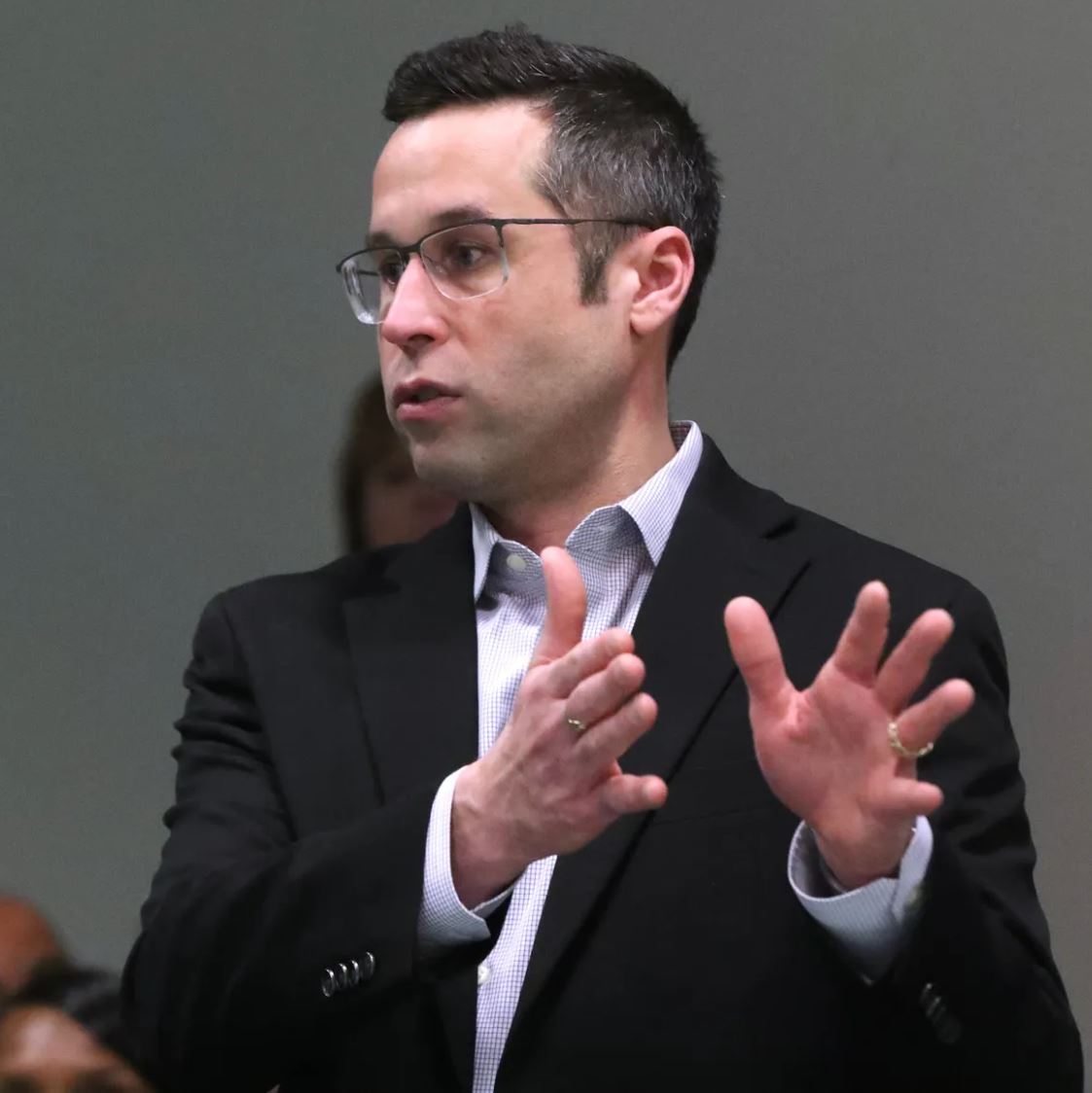Foil: Your right to Know.
“A state bill, introduced by Assemblyman Ken Zebrowski Thursday, aims to install a fiscal control board in East Ramapo to oversee the cash-strapped school district. Without such drastic measures, one lawmaker warns, the school district may not have the funding to open its doors in September.
Such a state-run board could have the ability to raise local property taxes to boost the district’s depleted coffers.
“After decades of crisis, the chickens have fully come home to roost here,” Assemblyman Ken Zebrowski said in an exclusive interview with lohud. “It is our responsibility as a state to ensure that these kids can access their constitutionally guaranteed right to an education.”
The Assembly bill did not have a Senate version as of Thursday afternoon. State Sen. Shelley Mayer said Thursday that she was reviewing the legislation.
“Having met with parents and students on multiple occasions, I know the current situation for these students and their families is unstainable and unacceptable,” said the Yonkers Democrat, who chairs the Senate Education Committee.
Notably, the bill has the backing of the New York State Department of Education.
“Installing a financial control board in East Ramapo will help the district to regain its financial footing after years of failed and no-growth budgets,” NYSED spokesperson JP O’Hare said Thursday.
State education officials said the department would work with Gov. Kathy Hochul’s office and state legislators to move the district forward.
The push for a control board comes on the heels of yet another budget defeat at the polls in East Ramapo. The 2024-2025 budget plan requested a 1.99% tax levy hike, but was rejected by voters Tuesday.
“Let’s be clear, even with the 1.99% (tax levy hike) this district was going to run into times when could not meet payroll,” Zebrowski said.
Without state action, Zebrowski said, “These kids will not have a school to go to.”
Challenges in divided district State-appointed monitors and district officials have repeatedly warned a “fiscal cliff” looms. Without an immediate influx of cash, the district anticipates it would not be able to pay its bills, including payroll, as soon as this summer. Banks have already denied borrowing to the district, based on its credit rating that hovers at one step above junk status.
Community trust in the district has become just as shaky as its finances.
East Ramapo faces fiscal challenges unlike others in the state: About three-quarters of some 45,000 children who live in the greater Spring Valley area attend private schools, mostly yeshivas that serve a growing Hasidic and Orthodox Jewish population.
Some 96% of public-school students are children of color. More than half are English language learners. With many families recent immigrants, voting power is diminished because one has to be a U.S. citizen to register to vote, including in school elections. About 14.8% of East Ramapo’s public school students are considered homeless, a larger percentage than in New York City schools or any other district in the Lower Hudson Valley.
The majority of school board members are men who are seen in the public school community as favoring yeshiva students’ needs. The board is elected via wards, meaning trustees represent a specific neighborhood.
With a strong private-school community vote and many public-school parents unable to register because they are not U.S. citizens, budgets that raise the tax levy consistently fail at the polls. In recent years, far more budgets have been rejected in East Ramapo than in any other district in the state.
East Ramapo:NY Regents chancellor tells public-school parents, ‘Hold us accountable’
Public-school parents have pushed for some form of state takeover. They have hosted two meetings with key members of the Board of Regents. Earlier this month, they took buses up to Albany to lobby state lawmakers.
Mery Mora of Spring Valley had to arrange before- and after-school care for her child to make the May 7 trip to the state capital. But it was important, Mora said, for state lawmakers “to hear our voices.”
Drastic situation, drastic solution
While a control board is not unprecedented in New York state, it’s highly unusual, Zebrowski acknowledged. “This is a drastic situation that demands a drastic solution.”
While the majority rules, Zebrowski said government has had to step in throughout times in American history to protect the rights of the minority.
“That is what this is,” the West Nyack Democrat said. “We have some of the neediest kids in Rockland County in this district who have the most needs and they are getting the least.”
Zebrowski isn’t running for re-election after nine terms and will leave office at the end of the year.
A control board could raise taxes and even pass a bond to repair buildings that the community would pay back over time.
The Assembly bill would also include a “spin up” of about $20 million in future state aid that the district could access sooner.
Despite tens of millions of dollars in federal COVID funds being invested in facilities repairs, all of the district’s school buildings failed a Building Condition Survey last year.
A planned bond to fix those issues never materialized.
All schools have had drinking water fixtures turned off for seven years due to the presence of lead. Superintendent Clarence Ellis announced in August 2023 that lead-laden fixtures would be replaced this year. An update on the planned project was not immediately available.
Ellis, by the way, leaves this summer — the school board didn’t renew his contract. There’s no replacement named; a board pick was rejected by a state-appointed monitor.
The district continues to operate with a teacher, staff and leadership shortage. Despite having the most complex school transportation system in the state outside of NYC, the district’s transportation department lacks key personnel. Zebrowski said state action is overdue. “We cannot bank on this local contribution increasing at any time in the future.”
Read the complete Journal News story at The Journal News here.





